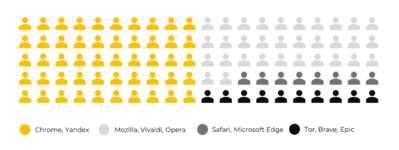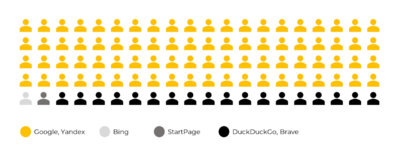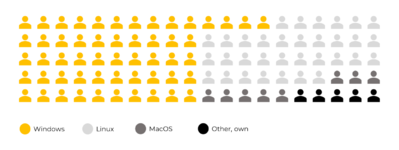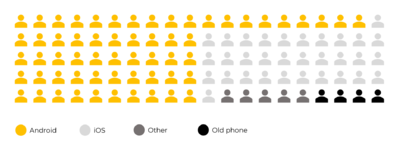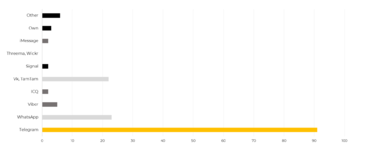- Joined
- 31.10.19
- Messages
- 281
- Reaction score
- 625
- Points
- 93

Reading Telegram channels and news feeds, as well as various social surveys, one might get the impression that people are very concerned about their privacy. Some react quite sharply to targeted advertising, cold calls and the fact that someone might learn something personal about them. People react strongly because they feel less protected and they want to feel safe again and ensure that the world knows less about them. This is understandable: if we look at Maslow's Hierarchy of Needs, safety comes right after "food and sleep" and, of course, digital/information/cybersecurity and privacy are situated right here in 2024. In this article an attempt was made to obtain confirmation that people are indeed concerned about privacy issues or whether emotions fade away after the initial reaction.
Safe Technologies
To obtain confirmation, the main technologies that each person uses daily were examined, assessing users' choices in favor of functionality and convenience versus security and privacy (the examples of solutions in the categories are not exhaustive lists). Information gathering began with browsers, which were divided into four categories with examples:
- Functionality and services (Google Chrome, Yandex Browser)
- Proprietary (Safari, Microsoft Edge)
- Independence and openness (Mozilla Firefox, Vivaldi, Opera)
- Privacy (Tor, Brave, Epic)
- 50% prefer convenience
- 32% use more open solutions
- 8% do not bother and use built-in tools
- 10% try to use "safe" browsers
The results were as follows:
- 82% use classic search engines (Google, Yandex)
- 16% use "safe" search engines (DuckDuckGo, OneSearch)
- 1% choose proprietary (Bing) and independent systems (StartPage)
- 54% - Windows
- 33% - Linux
- 8% - MacOS
- 5% - Others, including custom-built
In terms of mobile devices, there were no surprises, but there is uncertainty about whether those who voted for "feature phones" actually use them as their primary device:
- 59% Android
- 32% iOS (iPhone)
- 5% Others (Authorora, HarmonyOS)
- 4% Feature phones
Finally, the last survey concerned messengers. Here the picture is broad, but Telegram is the undisputed leader.
Summarizing the above surveys and other indicators that are too tedious for the article and qualitatively assessing them, one can conclude that only 10 out of 100 people use tools and technologies that are initially positioned as "safe" and "private" or that are deployed or developed by the user themselves. At the same time, it can be safely assumed that half of these 10 only use part of the safe technologies or use them correctly. As a result, these 5 individuals not only don't fully utilize the entire set of tools but also stand out against the general background in terms of their digital profile, which theoretically could attract more attention. The final conclusion is that 90%+ of respondents, despite various statements from the media, people, some studies and even Maslow's pyramid still prefer convenience and functionality of devices and services rather than privacy and security.
Last edited:




